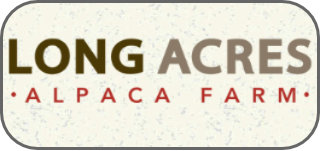- Alpacas can be infected with the same parasites as other livestock in Australia. Fortunately, alpacas tend to use a communal dung heap, which means they spread fewer parasites across paddocks than sheep or cattle, but an alpaca grazing near the dung heap can pick up significant numbers of parasites. LIKELY SUSPECTS Internal parasites likely to cause problems in alpacas include liver fluke (Fasciola hepatica) and roundworms, black scour worm (Trichostrongylus sp.), Barbers pole worm (Haemonchus contortus) and small brown stomach worm (Teladorsagia circumcincta). These parasites can cause conditions from mild weight-loss to scouring, blood loss and death if left uncontrolled. Tapeworm appear to cause minimal problems in alpacas. more »
- Alpacas, which are South American camelids, are susceptible to both cattle and sheep internal parasites including liver fluke (Fasciola hepatica). Worms specific to South American camelids, such as Lamanema chavezi, are not known to occur in Australia. Alpacas use dunging ‘latrines’ which can help to control roundworm parasites. As a result, worm burdens are often not high. However heavy barber’s pole worm (Haemonchus contortus) burdens can occur, especially in high rainfall coastal areas in NSW and Queensland. Alpacas are also quite susceptible to liver fluke, possibly due to their relatively small livers. more »
- There are several classes of gastrointestinal parasites which affect camelids to varying degrees. The intestinal nematodes affecting North American camelids include Trichostrongyle spp., Nematodirus spp., Haemonchus spp., Ostertagia spp., Trichuris spp. and Capillaria spp. The cestode, Monezia spp., may also be of some clinical significance. Protozoal concerns include Eimeria spp., Cryposporidium parvum and Giardia spp. Trematodes have also been shown to cause clinical disease in the biliary system of camelids, including Fasciola spp. and Dicrocoelium dendriticum. This document will focus on the control of gastrointestinal nematodes and coccidia of camelids. more »
- Without a doubt, the biggest advantage of dryland farming is a sizeable reduction in parasitic infestation, as compared to wet, humid environments. Parasites can multiply rapidly and, if unchecked, can lead to severe illness and even death in livestock. Most internal parasites enter the alpaca through oral ingestion. Pasture grazing presents a higher risk of exposure than dry lot feeding. more »
- A list of off-label medications for parasite treatment and/or control. more »
